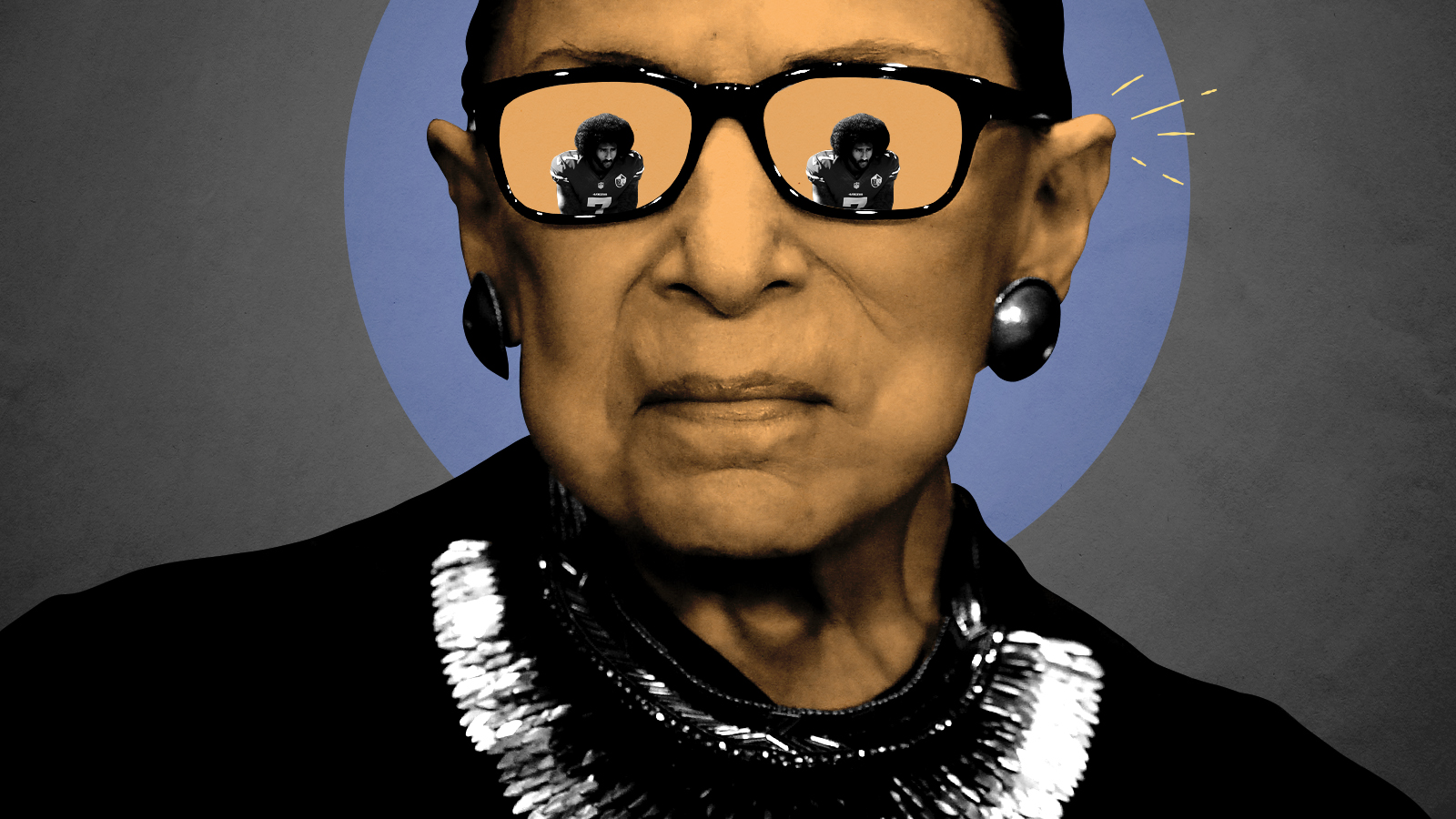How Katie Couric's RBG interview contributes to America's misinformation problem


A free daily email with the biggest news stories of the day – and the best features from TheWeek.com
You are now subscribed
Your newsletter sign-up was successful
If you want to get to the heart of America's misinformation problem, let's consider Katie Couric.
In her new memoir, the former Today and CBS Evening News anchor reveals she edited a 2016 interview in which Supreme Court Justice Ruth Bader Ginsburg criticized athletes who do not stand for the national anthem. The protests are an act of "contempt for a government that has made it possible for their parents and grandparents to live a decent life," Ginsburg said.
That was a remarkable, provocative statement. But Couric left the quote out of her final piece, guided by politics — she was "a big fan" of Ginsburg and wanted to protect her from a likely backlash — as well as paternalism: She believed the 83-year-old justice was "elderly and probably didn't fully understand the question." So Ginsburg's comments went down the memory hole for five years, until they became fodder for Couric's book.
The Week
Escape your echo chamber. Get the facts behind the news, plus analysis from multiple perspectives.

Sign up for The Week's Free Newsletters
From our morning news briefing to a weekly Good News Newsletter, get the best of The Week delivered directly to your inbox.
From our morning news briefing to a weekly Good News Newsletter, get the best of The Week delivered directly to your inbox.
Couric's revelation might add some momentum to the nascent reappraisal of Ginsburg, who spent her final years on the court celebrated on late night talk shows, Saturday Night Live, and in the movies as a progressive feminist icon. Her refusal to retire from the Supreme Court — perhaps encouraged by that adoration — ultimately cemented the court's rightward drift, putting abortion rights and her legal legacy in danger. It also appears that editing RBG is a trend: The ACLU recently altered a Ginsburg quote about child-bearing to make it more gender-neutral.
The bigger effect of Couric's admission, though, might be a new hindrance in battling misinformation. Couric chose to obscure a sitting justice's views on a newsworthy topic — the journalistic equivalent of a lie by omission. Revelations like this help seed the ground for mistrust in the newspapers and TV news outlets responsible for delivering true information to the rest of us. Many Americans have been primed to believe the media is lying to them, either because journalists lean to the left or because they're just too clubby with the people and institutions they cover. ("The big question is often not what you see they're doing, but what they're hiding from you," right-wing journalist Mark Hemingway promptly wrote of Couric's choice.)
Often that mistrust is cynically cultivated by ideological grifters like former President Donald Trump who want to replace reality with lies. But sometimes, as here, the damage is self-inflicted.
A free daily email with the biggest news stories of the day – and the best features from TheWeek.com
Joel Mathis is a writer with 30 years of newspaper and online journalism experience. His work also regularly appears in National Geographic and The Kansas City Star. His awards include best online commentary at the Online News Association and (twice) at the City and Regional Magazine Association.
-
 How the FCC’s ‘equal time’ rule works
How the FCC’s ‘equal time’ rule worksIn the Spotlight The law is at the heart of the Colbert-CBS conflict
-
 What is the endgame in the DHS shutdown?
What is the endgame in the DHS shutdown?Today’s Big Question Democrats want to rein in ICE’s immigration crackdown
-
 ‘Poor time management isn’t just an inconvenience’
‘Poor time management isn’t just an inconvenience’Instant Opinion Opinion, comment and editorials of the day
-
 Epstein files topple law CEO, roil UK government
Epstein files topple law CEO, roil UK governmentSpeed Read Peter Mandelson, Britain’s former ambassador to the US, is caught up in the scandal
-
 Iran and US prepare to meet after skirmishes
Iran and US prepare to meet after skirmishesSpeed Read The incident comes amid heightened tensions in the Middle East
-
 Israel retrieves final hostage’s body from Gaza
Israel retrieves final hostage’s body from GazaSpeed Read The 24-year-old police officer was killed during the initial Hamas attack
-
 China’s Xi targets top general in growing purge
China’s Xi targets top general in growing purgeSpeed Read Zhang Youxia is being investigated over ‘grave violations’ of the law
-
 Panama and Canada are negotiating over a crucial copper mine
Panama and Canada are negotiating over a crucial copper mineIn the Spotlight Panama is set to make a final decision on the mine this summer
-
 Why Greenland’s natural resources are nearly impossible to mine
Why Greenland’s natural resources are nearly impossible to mineThe Explainer The country’s natural landscape makes the task extremely difficult
-
 Iran cuts internet as protests escalate
Iran cuts internet as protests escalateSpeed Reada Government buildings across the country have been set on fire
-
 US nabs ‘shadow’ tanker claimed by Russia
US nabs ‘shadow’ tanker claimed by RussiaSpeed Read The ship was one of two vessels seized by the US military
